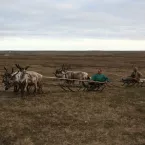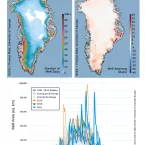Our Research
As climate changes, how do Earth's frozen areas affect our planet and impact society?
In this section
Related News & Stories
Filter by:

Analysis - Snow Today
Snow-covered area and snow cover days were the lowest in the 22-year satellite record. Dry, autumn conditions in Colorado prevailed with latest snow fall since 1882 contributing to a fire that burned a record number of homes in Colorado.

Analysis - Ice Sheets Today
So far during the austral spring and summer, except for the northern part of the Antarctic Peninsula and in the area of the Roi Baudion Ice Shelf, few areas on the Antarctic Ice Sheet had any significant surface melting as of this post.
Analysis - Sea Ice Today
By early January 2022, Arctic sea ice extent, while well below average, was within the lowest decile of recorded extents of the 1981 to 2010 reference period.
Analysis - Sea Ice Today
Sea ice extent increased at a faster than average pace through November and by the end of the month, extent was just within the interdecile range.

News Release
More rain than snow will fall in the Arctic and this transition will occur decades earlier than previously predicted, a new study led by the University of Manitoba (UM) and co-authored by scientists at the National Snow and Ice Data Center (NSIDC) reports.

Analysis - Ice Sheets Today
Two near-record melt events occurred in the 2021 melt season for the Greenland Ice Sheet, in late July and in mid-August. During the second event, an unprecedented occurrence of rain at the National Science Foundation’s Summit Station took place.